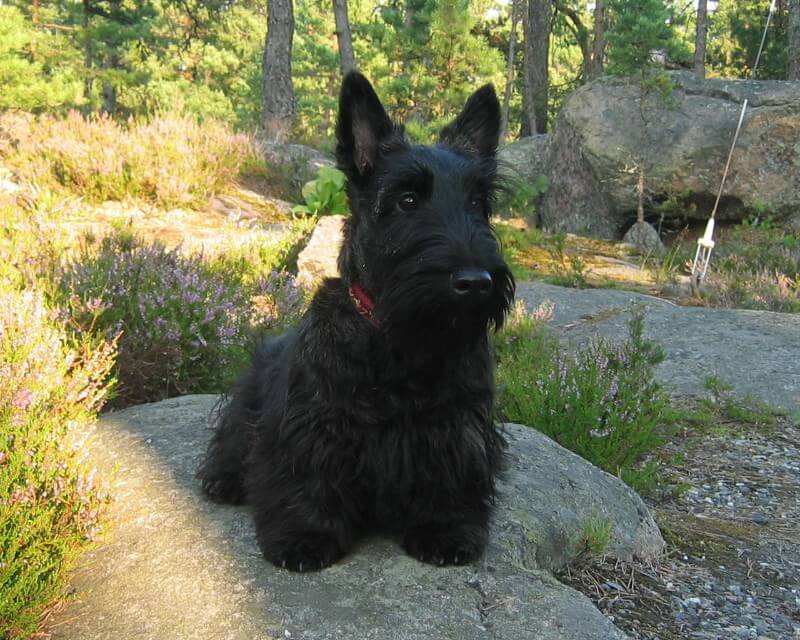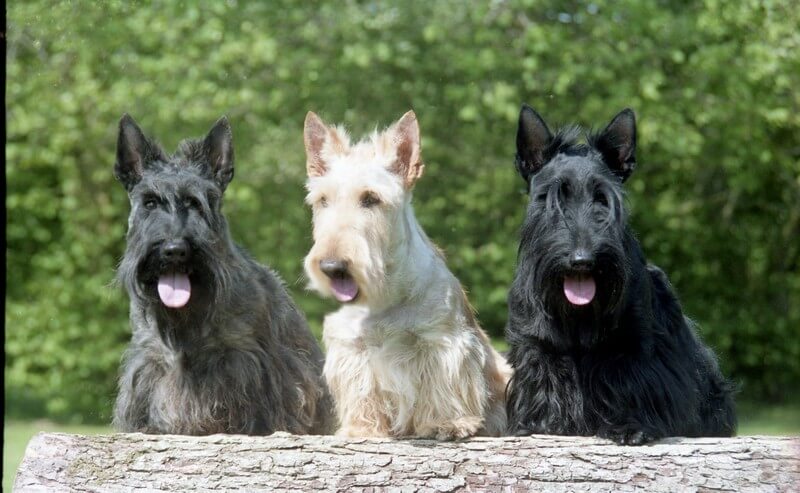A dog can be a handful, but they bring lots of joy into our lives!
It’s no secret that pets provide mental and physical benefits for aging adults. Having a dog as a companion animal means the owner gets more exercise. The love and companionship our pets provide us also helps reduce stress and even helps with depression and anxiety.
Age should never be a factor when deciding to get a dog as a pet, so we have put together a guide choosing a low maintenance dog for seniors.
Factors To Consider When Choosing a Dog Breed For Seniors
It is important to choose a dog breed whose energy level and personality match the lifestyle of the owner. Any dog breed works, provided you have the ability to take care of it!
As you age you may be worried about your ability to take care of a large or energetic dog. We have chosen six breeds that are a good balance of the following physical and personality traits you should consider when looking at breeds.
Size: a large dog can be a handful. They could get excited and yank their leash out of your hand, or jump up on you and knock you over. A smaller dog will be less likely to bowl you over, and they are easier to transport and tend to have cheaper veterinary costs!
Energy Level: if you lead an active lifestyle, an energetic dog might be right for you! But you may have to walk them several times a day and play with them often to prevent behavior problems. Other dog breeds are more low energy, requiring only one or two walks per day.
Age: while puppies are cute, their rambunctious energy and lack of housetraining can be a challenge for seniors. Instead, you might consider adopting an animal from your local humane society.
Intelligence: while all dogs can be trained, some are just faster learners than others. It helps to choose a breed that is easier to train so obedience is not an issue.
Sociability: when dogs meet on the street they tend to want to size each other up. Choosing a breed that is more naturally friendly with other dogs will help you avoid too many awkward dog standoffs in the street.
Common Health Issues: Some breeds of dogs are notorious for having health issues. For example, short-nosed dogs often develop respiratory issues. You may want to consider a breed less likely to have health problems, particularly if you are on a tight budget.
Some of The Best Dogs For Seniors
These six dog breeds make great companion animals in that they are low maintenance and friendly towards their owners.
It is worth noting that while purebreds come with a certain amount of prestige, mutts often suffer from fewer health issues due to their genetic diversity.
1. Maltese
These friendy pooches have a distinctive fluffy coat, but the good news for those with allergies as the very cute Maltese dog breed is hypoallergenic. These dogs will require regular grooming to keep their fur looking pristine!
They only weigh up to 7 pounds and are very affectionate, making them excellent lap dogs. They are also known for being intelligent, so they are easy to train.
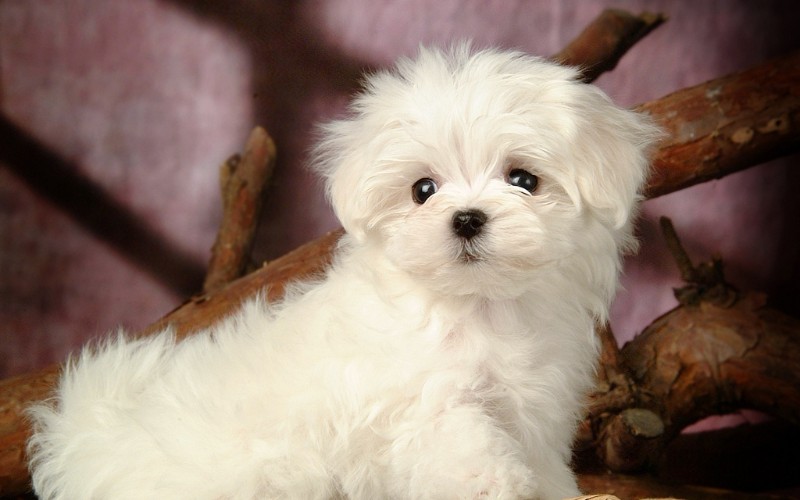
2. Cavalier King Charles Spaniel
This dog with a royal name and royal bearing can weigh up to 18 pounds and makes a faithful watchdog. They are known for being playful and sociable and are adaptable to both city and rural living.
The Cavalier King Charles Spaniel is fairly active and will need to be taken on long walks then some of the other breeds listed here. If you don’t mind going for plenty of walks or have a big yard for this dog to run around in, they may be right for you!
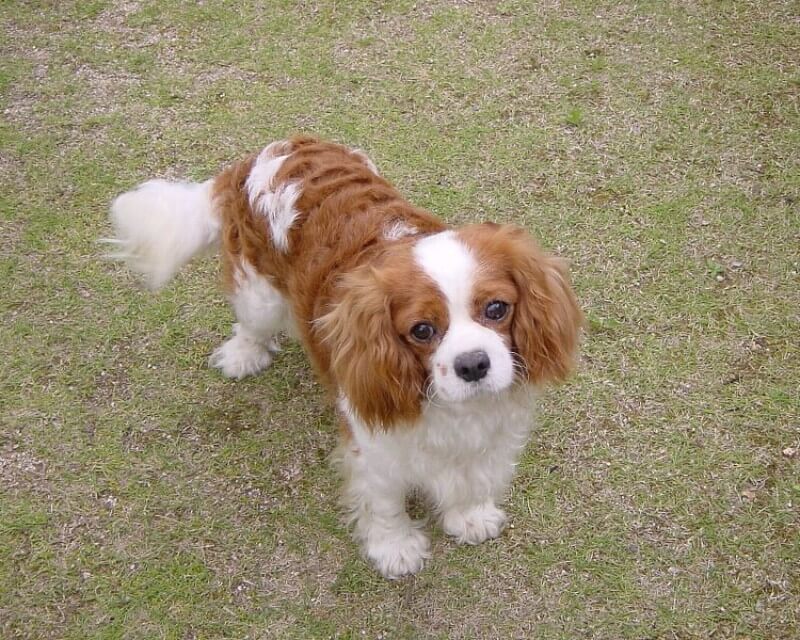
3. Welsh Corgi
While these medium-sized dogs have a lot of energy, they are very adaptable to apartment living. Their thick coat keeps them warm in cold weather, but it also makes them prone to shedding.
Corgis are exceptionally friendly and are likely to get along with kids or other pets. They are intelligent and easy to train, but also have a bit of an independent streak and can be a bit mischevious.
In general, you will need to make sure your corgi gets 30-45 minutes of exercise a day, and watch their diet as they are prone to weight gain from overeating!
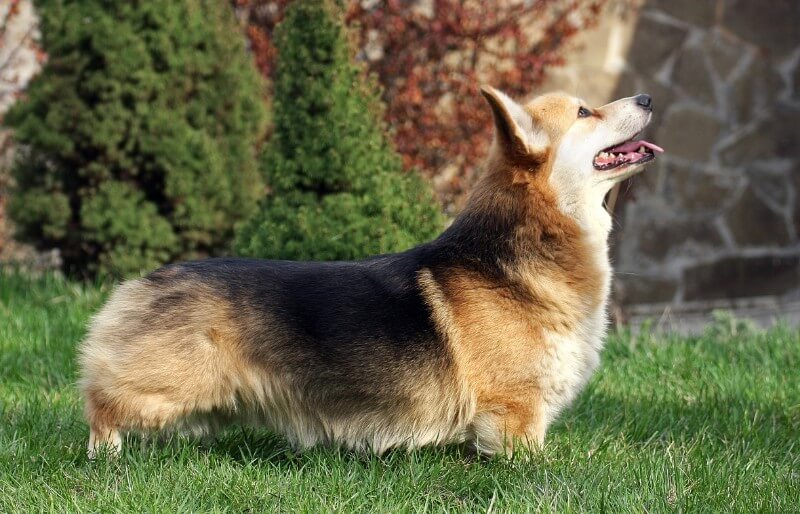
4. Poodle
Poodles are loyal and active watchdogs with hypoallergenic fur that enjoy plenty of activity.
Poodles come in three different breeds:
- Toy Poodle: 6 – 9 pounds
- Miniature Poodle: 15 – 17 pounds
- Standard Poodle: 45 – 70 pounds
They can be slightly nervous dogs and require a lot of attention from their owners. While very loyal, they can be standoffish around strangers. These dogs are also particularly empathetic and tend to mimic their owner’s mood.
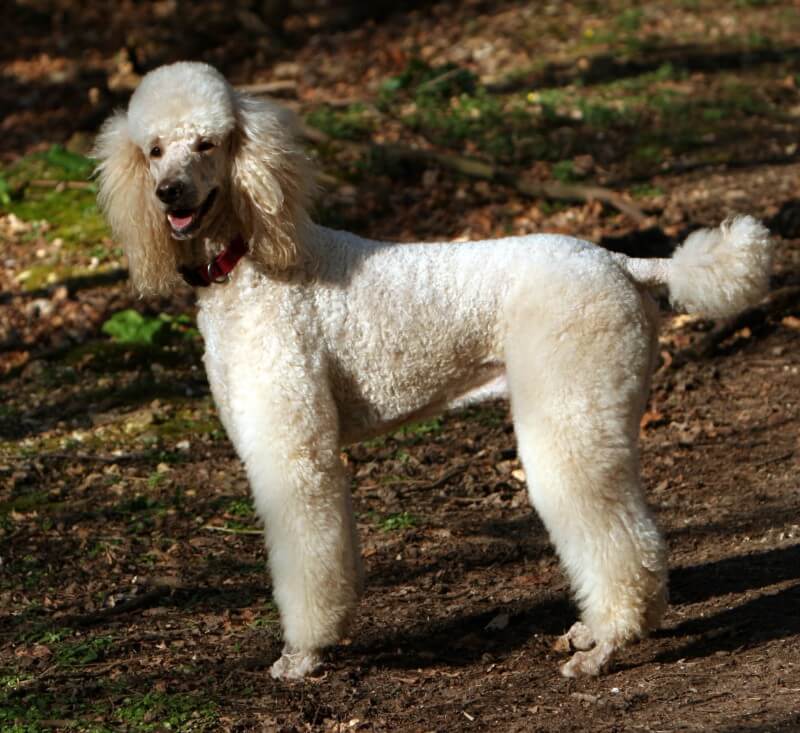
5. Italian Greyhound
When you hear Greyhound you may be thinking of the Italian Greyhound’s larger cousins, as these little guys end to weigh under 11 pounds. These wiry Greyhounds are sensitive and affectionate, making for great lapdogs.
One major benefit of this breed is that their coat is hypoallergenic and they barely shed. In colder climates, these pooches may need a sweater to stay warm outdoors.
Italian Greyhounds are friendly and snuggly companions but also energetic, and may require up to an hour of exercise a day. Older dogs, however, can be much more adaptable to a less active lifestyle.
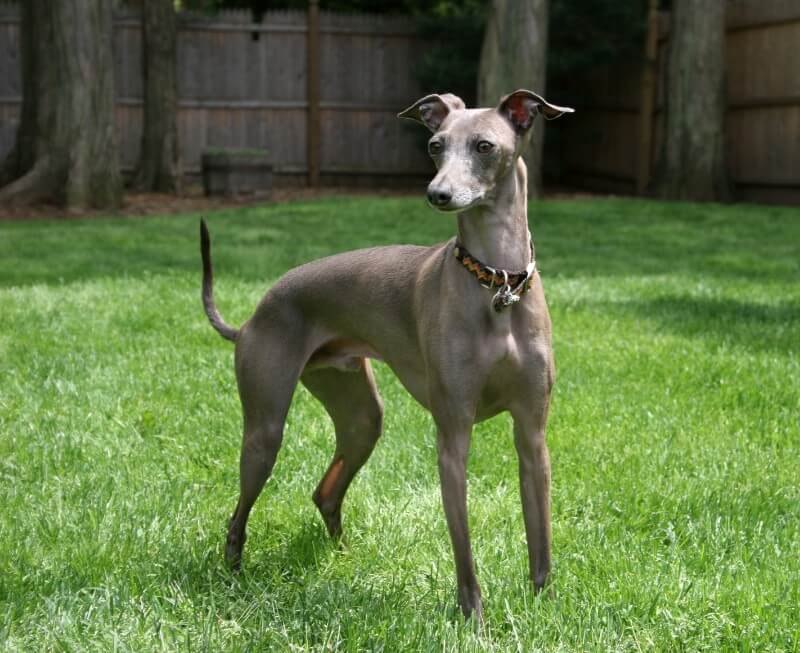
6. Scottish Terrier
Last but not least, we have the “Scottie.” These medium-sized dogs have a shaggy coat that requires regular grooming but is also hypoallergenic. A major perk for seniors with mobility issues is that the Scottish Terrier does not typically enjoy running.
They can sometimes be difficult to train, and are natural diggers so you will need to keep an eye on your yard! These dogs are also great for apartments and enjoy being around children.
Another perk of the Scottish Terrier is that they are less prone to diseases then plenty of other pure breeds!
